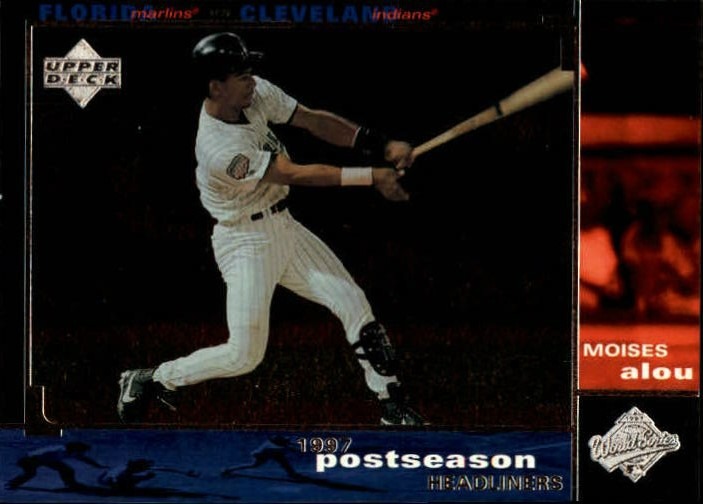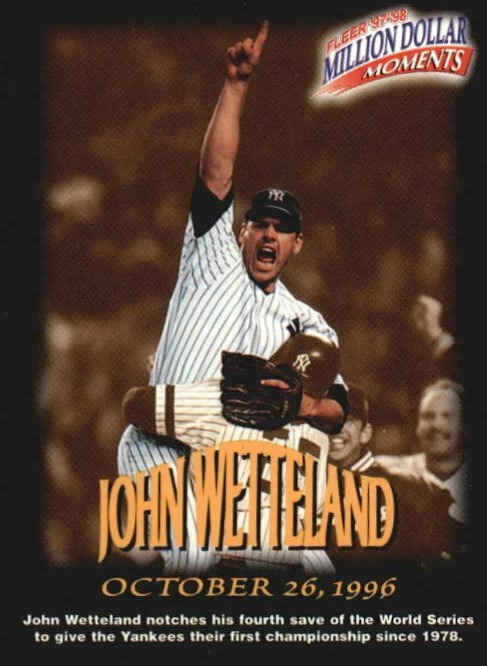The Montreal Expos are Finally in the World Series, but it’s 25 Years Too Late – The franchise that started in Montreal, now the Washington Nationals, is playing in its first Fall Classic after stunning the Brewers, Dodgers and Cardinals in the playoffs. It’s a joyous occasion for a team that has repeatedly fallen short in the playoffs or suffered through lost seasons. The Nationals broke through with help from aces Stephen Strasburg and Max Scherzer, star third baseman Anthony Rendon and electric 20-year-old outfielder Juan Soto.
The Nationals’ playoff run offers a chance to look back at that other team with World Series dreams: the 1994 Montreal Expos, baseball’s most complete team before the strike wiped out that year’s postseason. The Expos were 74-40 when the season stopped, a 106-win pace across a 162-game season. The previous team to win that many games in a season was the 108-win 1986 Mets, and it didn’t happen again until the 1998 Yankees. Both of those teams won the World Series.
For comparison’s sake, this year’s Astros — the team facing the Nationals in the World Series — led Major League Baseball with 107 regular season wins.
The 1994 Expos roster was full of emerging players who would shape baseball for the next decade. But sadly, much of that success would come with other teams.

The pitching staff was led by Ken Hill (who led the National League with 16 wins) and a Dodgers castoff named Pedro Martinez (11-5 with a team-leading 142 strikeouts). The bullpen was anchored by John Wetteland and his 25 saves.
Moises‘ father Felipe Alou was the manager, and the Expos didn’t have a visible weaknesses. In fact, Montreal was getting stronger as the calendar pages turned — the Expos went 46-18 after June 1. As the playoff picture came into focus, two teams stood above the rest in 1994: the Expos and Yankees, at 70-43.
The Expos were six games ahead of the Braves (68-46). Cincinnati (66-48) led the N.L. Central, just ahead of Houston (66-49), and the Dodgers (58-56) were in front in the National League West.
Montreal’s path in the 1994 playoffs may have involved some of the same teams from this year’s playoffs: Houston, Los Angeles, Atlanta, New York.
As the 1994 Expos continued winning, the city embraced its team in a way that it hadn’t during the lean years. But the strike wiped out the rest of the regular season and October, and without the revenue from a deep playoff run, the team’s financials didn’t work. The Expos ended up shedding the core players from the 1994 team, trading stars for diminished returns or seeing them walk in free agency.
Fans had grown used to the yearly tradition of rooting for former Expos players in the World Series for other teams. Former Montreal stars like Gary Carter (1986 Mets), Jeff Reardon (1987 Twins) and Tim Raines (1996 and 1998 Yankees).
But the players on the 1994 Expos factored directly into a decade of World Series outcomes for other teams. These standout performances hinted at what might have happened if the 1994 playoffs weren’t erased and the team was kept together.
In 1995, Marquis Grissom caught the final out of the World Series, securing the victory for the Braves. Ken Hill lost Game 4 of that series for the Indians.
In 1996, John Wetteland got the championship-clinching save for the Yankees (Grissom batted .444 in the losing effort for the Braves).
In 1997, Moises Alou was one of the Marlins’ biggest stars, hitting three home runs and battling .321 in Florida’s seven-game series win over Cleveland. Alou teamed with Cliff Floyd to bring Florida the championship. Grissom was again in the World Series in 1997, this time with the Indians, and again he rose to the occasion, batting .360 after winning ALCS Most Valuable Player honors.
Kirk Rueter — a young pitcher in 1994 who won 130 games in his career — helped the Giants reach the World Series in 2002.
And then there was 2004, which pitted the most brilliant pitcher in Expos history, Pedro Martinez of the Red Sox, against one of its most talented hitters, Larry Walker, then with the Cardinals.
Martinez was masterful as usual, shutting down St. Louis with a 3-hit, 7-inning gem in Game 3. Walker was the Cardinals’ leading hitter in the losing effort, hitting .357 as the Red Sox swept the series for the team’s first championship since the Woodrow Wilson administration.
All of those players who contributed to pennant-winning teams — Grissom, Wetteland, Hill, Alou, Floyd. Rueter, Martinez, Walker — were playing together with the Expos in 1994.
Card releases highlight the players’ success in the Fall Classic for other teams.
On the back of Grissom’s 1996 Topps card: “Despite an unexceptional regular season, Marquis was a terror when it counted. He set an all-time record with 25 post-season hits while swatting safely in all 14 games — the 4th-longest post-season hitting streak ever. His 11 safeties vs. Colorado was a Division Series record.”
Curiously, for 1996 Stadium Club, his TSC skills matrix — a measure of player’s attributes in various categories — lists his “clutch” level as average. Surrrrrrre… Grissom was arguably the most clutch player across three consecutive postseasons, hitting .328 during that time — so across the 1996, 1997 and 1998 playoffs, he hit like Wade Boggs. That’s pretty clutch. He could have been doing that for the Expos.
Images of Wetteland jumping into Yankees catcher Joe Girardi’s arms were on numerous cards during the late 1990s, marking the resurgence of the Bronx Bombers.
Meanwhile, card No. 426 in 1998 Upper Deck celebrates Alou’s three-run home run in Game 1 of the 1997 World Series, powering the Marlins to a 7-4 win.
Of course Pedro’s World Series victory with Boston has made its way into box sets, subsets, insert sets and manufactured relics. Most recently in 2019 Topps Opening Day’s “150 Years of Fun” insert.
The Expos experienced 36 seasons of fun in Montreal, a city with a hopping personality that was a favorite of visiting players. Olympic Stadium, or Stade Olympique, was a strange place to play with its usually non-functioning roof, a running track behind home plate, and seating sections set far back from the gameplay.
And there was Youppi! The mascot, an instigator with an orange beard.
Youppi! is now a mascot for the NHL’s Canadiens. He didn’t make the move to Washington. That’s what happens when your team moves away — you find a different team to support.
The Nationals have new traditions. The Presidents Race is a baseball institution now — Teddy Roosevelt will be running in the World Series!
Washington enters as heavy underdogs against the Astros, a team that was meticulously crafted and chiseled over half a decade. It’s a team that was built to last, a team without any noticeable flaws and a talented nucleus. A team with a lot in common with the 1994 Expos, if the Expos had been given the chance to stay together.
For more from Dan Good, follow him on Twitter @Dgood73.
The Montreal Expos are Finally in the World Series, but it’s 25 Years Too Late
- The Story Behind CC Sabathia’s First Card - October 25, 2019
- The Montreal Expos are Finally in the World Series, but it’s 25 Years Too Late - October 21, 2019
- Topps Magazine Back in Print! - August 26, 2019





